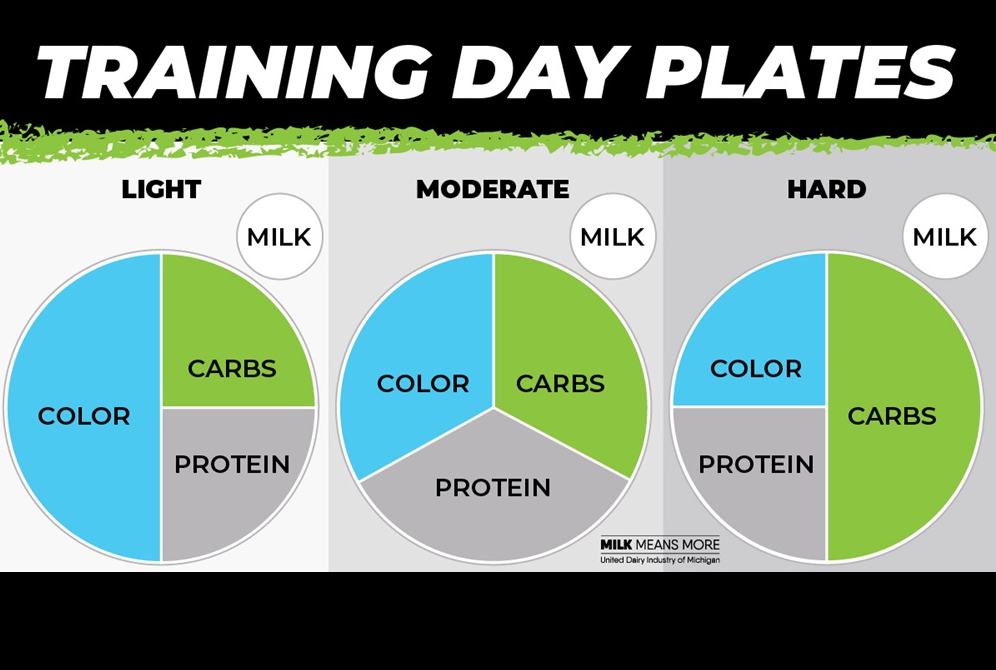
Coaches Guide to Nutrition: What are Macros?
April 30, 2024
Planning your meals and snacks shouldn’t be challenging.
Break foods down into three categories: Carbs (energy), Protein (build and repair muscles), and Color (vitamins, minerals).
Adjust your plate based on your level of activity that day. Remember that your body needs carbohydrates like grains, fruits and vegetables for muscle fuel.
On hard training days, up to half of your plate should be carbs. On a recovery or rest day, make a quarter of your plate carbs.
Plan your meal
Check out these examples for your day’s main meals:
- Overnight oats with fruit
- Egg wrap with spinach, cheese and salsa
- Cereal with fruit and milk topped with nuts
- Smoothie made with milk, fruit, spinach and oats
- Don’t forget about school breakfast!
Lunch
- Turkey roll-up with cheese, tomato and lettuce, fruit and milk
- Grilled cheese sandwich, tomato soup, small salad, milk and pear
- Large salad with your choice of berries, grilled chicken, cheese and vinaigrette dressing, garlic bread and milk
- School lunches are made with student nutrition in mind!
Dinner
- Pasta with chicken, pesto, tomatoes and peas with milk
- Shrimp or tofu fajita bowl with brown rice, peppers, onions and shredded cheese. Add guacamole and plain Greek yogurt instead of sour cream.
- Cheeseburger made with 90 percent lean beef or turkey on a whole grain bun with lettuce and tomato and a glass of milk. Add baked sweet potato fries on the side.
Information above is excerpted from UDIM’s A Coach’s Guide to Nutrition.
Coaches Guide to Nutrition: Building a Performance Plate
August 5, 2025
Proper nutrition is key to athletic performance, and it all starts with how you build your plate.
Athletes need at least three balanced meals a day, plus snacks, to fuel training, competition, and recovery.
But knowing what — and how much — to eat can be confusing.
That’s why we’re breaking down the “Performance Plate” model to help guide your choices.
Whether it’s a rest day, intense practice, or game day, this simple visual approach ensures you’re getting the right mix of carbohydrates, protein, healthy fats, and colorful fruits and vegetables at every meal.
Information above is excerpted from UDIM’s A Coach’s Guide to Nutrition.


